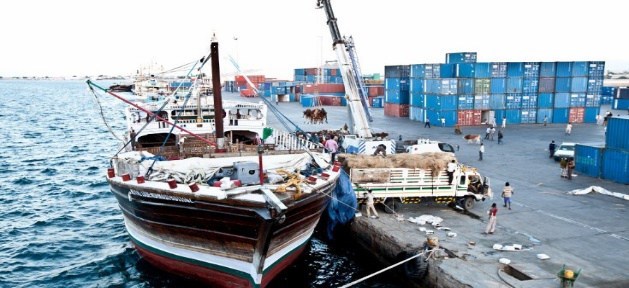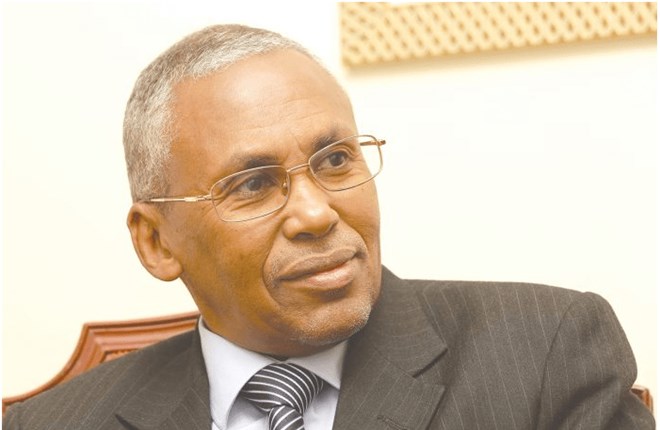
Tuesday April 3, 2018

“Had you come a day earlier, you’d have seen us loading camels onto ships heading to the Middle East. Somalia as a whole has the world’s largest number of camels, at six million,” said Ali Esmail Mahmoud, Head of Operations at DP World Berbera, as he took visiting journalists on a tour of the port.
“Since DP World took over the running of the port, there have been many changes,” Mahmoud said. “We’ve added a lot of equipment. We’ve ordered three mobile harbour cranes. Six reach stakers have been added, with three more on the way, along with empty container handlers, mobile cranes, internal terminal vehicles and forklifts.”
He also said the port was using a new software, Sodiaz, which is also used in many other DP World ports.
“People were trained on the software outside the country, including in Thailand.”
As per the deal, DP World will invest $442 million (Dh1.62 billion) in the port, controlling a 51 per cent stake in the project while the Somaliland government will control 30 per cent.
As part of another deal announced last month, Ethiopia will become a 19 per cent stake holder in the port.
That deal was also bitterly opposed by the Somali government in Mogadishu.
Speaking to journalists, Somaliland’s Foreign Minister Dr Sa’ad Ali
Shire said no one had the authority to interfere in a deal between
Somaliland and DP World.
Somaliland’s Foreign Minister Dr Sa’ad Ali
Shire said no one had the authority to interfere in a deal between
Somaliland and DP World. PHOTO: Somaliland Press
“This is an economic and commercial deal that will benefit everyone in the Horn of Africa region. Somalia’s claims are baseless, and don’t change anything on the ground.”
Somaliland is a self-declared independent republic that is not recognised by the international community but has all the trappings of a state, including its own parliament, judiciary, currency and armed forces. It also holds elections that are seen as being free and fair, and issues its own passports. The government of the region sees Somaliland as the successor state to the colonial-era British Protectorate of Somaliland. Somaliland is also far more politically and economically stable than Somalia.
The port provides jobs to 780 local people. And has clearly benefited the economy of the region; the construction sector has been given a fillip due to the planned expansions and improvements already made to the port. “Land in the area is also going up in value,” Mahmoud said. “The infrastructure in the region is improving and many companies are coming here to do business.”
The port’s annual capacity is 150,000 TEUs-twenty-foot equivalent units (container); 15 million MT (general cargo, bulk, ad break bulk); and 4 millon heads (livestock).
DP World Berbera also provides assistance to the tune of $4800 a month to the nearby Berbera Maritime and Fisheries Academy, which was established in 2012 and has graduated 85 students, including 12 women. The port has also donated $770,181 in the past 12 months to educational institutions, mosques and hospitals in the region and built five water wells for the community.
Mahmoud added: “We are currently working on a three-phase basis: Phase zero, phase one, and phase two. As part of phase zero, we are developing the existing terminal. We’ve made many changes, including to infrastructure, electricity, training facilities etc. Phase one begins in five months, and is expected to be completed in 2020.”